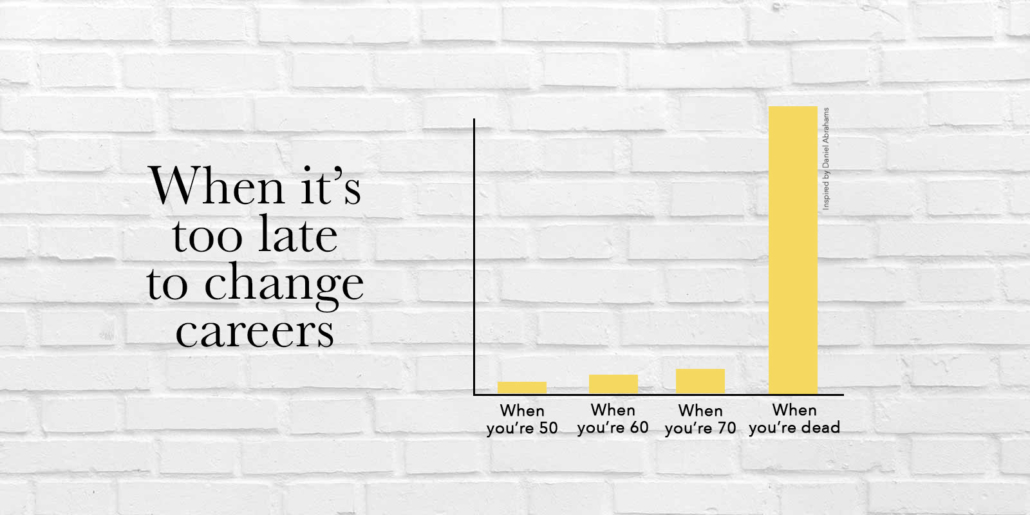You may be surprised to hear that most of my clients don’t feel the urge to change careers because they hate what they’re doing. Work is good. Pay is good. The position is generally satisfying. From the outside, everything looks enviable. There seems to be no reason to disrupt the status quo.
And yet — like them — you may feel it deep down, even though things are going smoothly.
Here are some signals that should make you curious.
1. You introduce yourself with a conversational version of your CV.
When asked who you are and what you do, you deliver a polished, well-rehearsed loop. You mask your boredom with a cheerful tone. But something feels… off.
2. You consume stories about people who reinvented themselves.
You avidly read about those who succeeded in another field, or built a different life. Your rational self says it’s too late, too risky, too complicated — and that you lack the required skills. Still, you keep documenting the topic. Avidly.
3. You’re on autopilot.
You go through the motions because you’ve mastered your job. But you’re not fully there anymore. You’re coasting more than you care to admit.
4. The retirement question lingers.
You catch yourself wondering whether you’ll do this until retirement. The thought has become part of the mental furniture. It doesn’t go away. It quietly unsettles you.
5. Other people’s passion surprises you.
You hear someone speak enthusiastically about the very job you’re doing — and you’re intrigued. You used to feel that way. Once.
6. “What if…?” keeps visiting you.
What if you were doing something else? Living differently? Waking up with another agenda? These inner conversations scare you — and make you feel intensely alive at the same time.
7. You fix the surface, avoid the core.
You focus on small optimizations — health tweaks, home projects, marginal work improvements — while sidestepping the deeper question:
Why are you doing what you are doing?
If you recognize yourself in some of these signs, it may be time to sit with that question.
There is no wrong answer. Money, status, convenience, and security are valid reasons to stay. But what else needs to be heard? Who is the person you would like to become? How far are you from that version of yourself? Where would you be in a year if things unfolded as you truly wished? What are you ready to say yes to — and what are you ready to say no to? How would it feel to remain exactly where you are for another year? Another five?
Every life-changing decision starts with listening — really listening — to your true feelings. It requires the courage to face the confusion and the conflicting demands that will inevitably surface. The moment you begin questioning the status quo of your life and work, you may already be in transition.

 Alexandra Humbel Coaching
Alexandra Humbel Coaching Alexandra Humbel
Alexandra Humbel Alexandra Humbel Coaching
Alexandra Humbel Coaching Alexandra Humbel Coaching
Alexandra Humbel Coaching Alexandra Humbel
Alexandra Humbel Alexandra Humbel
Alexandra Humbel Alexandra Humbel
Alexandra Humbel